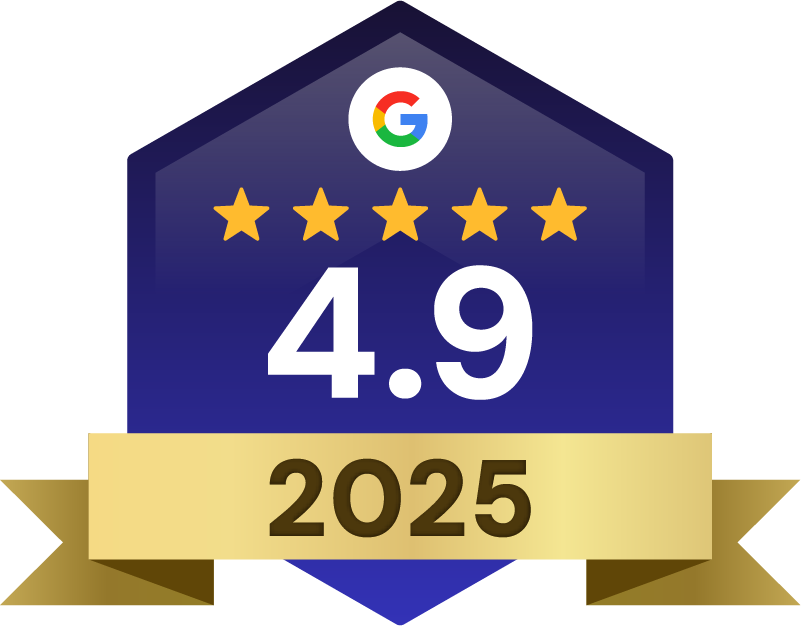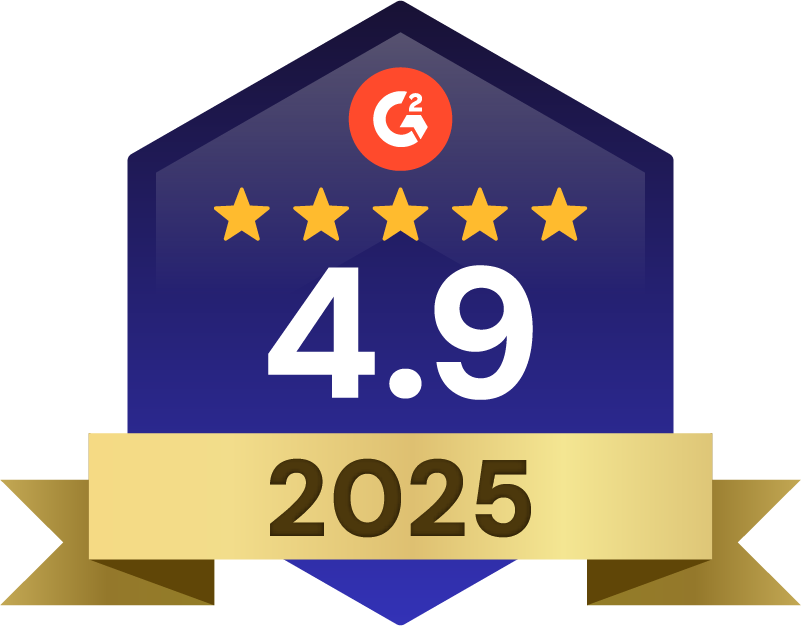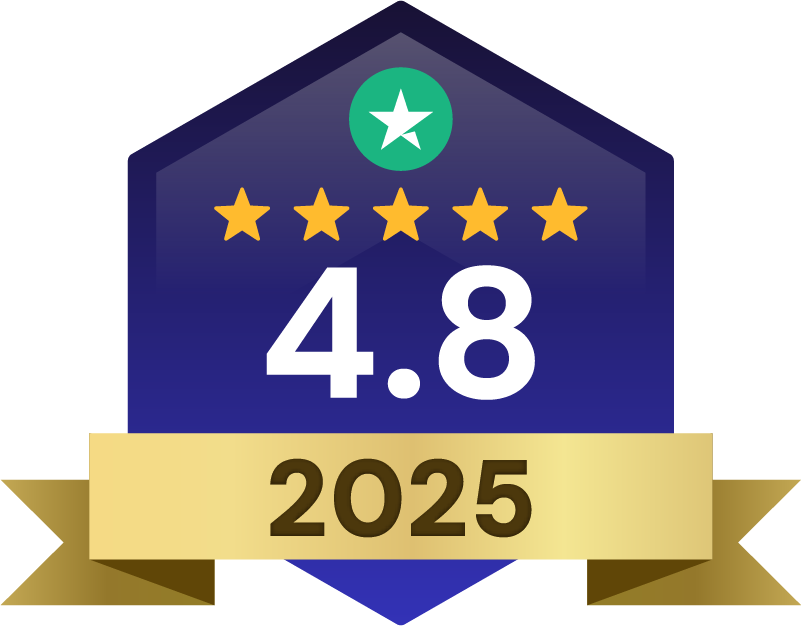Should you use Zillow? How does Zillow get its data? How can you beat Zillow in your area of service? Find the answer to these questions in this article.
Branding & Design
Zillow, the real estate aggregator giant, has pretty much taken over the industry when it comes to real estate coverage, internet presence, and marketing. With its massive reach, handy tools, and endless Zillow facts and features, it’s no wonder buyers and sellers flock to it.
If you’ve been frustrated watching Zillow dominate the market, you’re not alone. But here’s the big question: is there any way to beat Zillow and take back control of your turf?
In this article, we’re breaking down 10 Frequently Asked Zillow Questions by Real Estate Agents, covering everything from Zestimates to leads, cookies to troubleshooting:
- How Accurate is Zillow’s Zestimate?
- Where Does Zillow Get Its Data?
- How Does Zillow Make Money?
- How Much Do Zillow Leads Cost?
- How Many Properties Can You List with Zillow Premier Agent?
- How Do You Get the Seller’s Agent Contact from a Zillow Listing?
- How Does Zillow Use Cookies and How Can You Enable Them?
- Should You Use Zillow in Your Marketing Efforts?
- Troubleshooting Zillow’s Technical Issues
- How Can You Beat Zillow?
1. How Accurate is Zillow’s Zestimate?
One of Zillow’s most famous (or infamous) features is their Zestimate. The Zestimate is the estimate that Zillow generates to the price a property. But unlike a real estate agent or appraiser, who visits the home, closely inspects it, runs comparables and takes into account unique features about the home, Zillow uses a computer algorithm.
The Zestimate algorithm calculates a home’s value by using public tax information, details about the home’s size, number of bedrooms and bathrooms, the sold price of similar properties, MLS data, and homeowner submitted pictures of the home.
Zillow’s Zestimate algorithm uses lots of variables and information sources that a human real estate agent might use to price home. But one of the most controversial aspects of the Zestimate is the fact that it provides a single price estimate, instead of a range. And this is by design.
Zillow’s founders purposely chose to provide a single, specific price for their Zestimate, because they felt that this would be a lot more compelling that offering a range.
True, Zillow openly admits its Zestimate should not be used as an absolutely accurate assessment of a home’s true value. But offering a single value is misleading. It creates an anchoring effect in the home buyer/seller’s mind, and primes them to accept a specific price.
Since Zillow never inspects the home in person, the Zestimate can be seriously off at times, especially when estimating the value of an older home that has had a number of renovations and upgrades over the years,
To give an example, according to Zillow itself, only 62.7% of Zestimates fall within the sale price of homes in San Francisco California.
This is why it shouldn’t come as a surprise that several class-action lawsuits have been filed against Zillow.

2. Where Does Zillow Get Its Data?
Zillow gets its data from a variety of places:
- It uses publicly available property data, such as state tax and property records.
- It uses data submitted to and collected by Zillow directly.
- It has access to listing data from MLS that have given it permission to republish their listing feeds.

3. How Does Zillow Make Money?
Zillow provides many tools and services free of charge. Any homeowner, home renter, or real estate agent can list on Zillow for free. And yet, Zillow makes a ton of revenue each year.
How is that possible? That’s because unlike Redfin, Zillow is not a real estate brokerage, it’s a marketing corporation.
It makes its money in several different ways:
- Zillow makes most of its money selling advertising space in its network of acquisitions. These include Zillow, Trulia, Naked Apartments, Zillow’s Rental Network, Zillow News Paper Consortium, and many others.
- Zillow sells leads to Premier Agents.
- It runs the iBuying home flipping service. This service purchases homes in cash, fixes them and resells them.

4. How Much Do Zillow Leads Cost?
In 2025, Zillow leads remain one of the most talked-about tools in real estate marketing, but how much do they actually cost, and are they worth it? The short answer: it depends. Lead costs typically range from $20 to $60 each, but the actual pricing depends on several key factors.
What Impacts Zillow Lead Costs?
- ZIP Code Competition
Zillow lead pricing is highly influenced by the ZIP code you’re targeting. In high-demand areas or neighborhoods with expensive homes, leads can exceed $100 each. Competitive markets like major metro areas often have higher costs due to increased agent demand. - Home Values in Your Area
Zillow adjusts its pricing based on the average property value in your region. Markets with higher home prices naturally see higher lead costs, reflecting the potential commission opportunities for agents. - Local Market Activity
In hot markets, where buyer demand is high, you can expect to pay more per lead. Conversely, less competitive markets may offer leads for as low as $20.
Subscription Options: Zillow Premier Agent
Zillow Premier Agent offers subscription packages for agents looking to secure a steady stream of leads. Here’s how it breaks down:
- Basic Plan: $100/month for around 10 leads.
- Standard Plan: $200/month for about 30 leads.
- Premium Plan: $300/month for up to 50 leads.
These plans are ideal if you’re looking for predictable costs and a consistent number of leads each month.
Flex Pricing: Pay After You Close
For agents who prefer a results-driven model, Zillow’s Flex option charges a percentage of your commission on closed deals. As of late 2023, this fee increased to 40% in competitive markets like Denver and Cape Coral. While no upfront investment is required, the higher success fee means you’ll need to weigh the potential ROI carefully.
Is It Worth It?
Zillow’s leads are often high-intent, meaning they can deliver strong ROI if leveraged effectively. Many agents report 3-5x returns when targeting the right ZIP codes. To maximize value, consider co-marketing with lenders to offset costs or using Zillow’s dashboard to analyze ROI by area.
In short, Zillow leads can work well for agents who strategically invest in the right areas and pricing models. Just make sure you’re tracking your results and refining your approach for maximum impact.
Click the button below to learn more about pricing.
5. How Many Properties Can You List with Zillow Premier Agent?
Zillow Premier Agent doesn’t limit the number of properties you can list, but the real value lies in how those listings are promoted. Here’s what you need to know if you’re considering this program to market your properties.
Unlimited Listings, But Visibility Costs
While you can list an unlimited number of properties, Zillow Premier Agent focuses on boosting the visibility of those listings. This is done through a share of voice system, where your profile and contact information are displayed alongside listings in the ZIP codes you pay to advertise in. The higher your share of voice (up to 100%), the more frequently your contact info appears.
For agents targeting high-demand areas, achieving significant visibility can get expensive. Competitive ZIP codes often require a substantial budget to stand out, so it’s essential to factor costs into your marketing strategy.
Featured Listings
Premier Agents get the added benefit of featured listings, which prioritize their properties in search results and on property pages. This means your listings will appear more prominently to prospective buyers, increasing their chances of generating inquiries. However, keep in mind that Zillow often promotes multiple agents on a single listing, so your contact details may not be the only ones displayed.
The ZIP Code Factor
Your ability to market properties effectively depends on the ZIP codes you buy into. Targeting multiple ZIP codes can help you reach a larger audience, but spreading your budget across too many areas can dilute your impact. Focus on high-priority ZIP codes where listings align with your expertise to maximize ROI.
Pro Tips for Success
- Optimize Listings: High-quality photos, detailed descriptions, and accurate property features are non-negotiable.
- Respond Quickly: Zillow leads expect fast responses. The quicker you engage, the better your chances of converting.
- Track Performance: Use Zillow’s analytics tools to refine your strategy and identify what’s working.
Zillow Premier Agent is all about visibility. The more strategic you are with your budget and ZIP code selection, the more effectively you can market your listings.
6. How Do You Get the Seller’s Agent Contact Information from a Zillow Listing?
Finding the seller’s agent’s contact information on Zillow isn’t as straightforward as you might hope, thanks to Zillow’s Premier Agent program, which prioritizes buyer agent connections. However, agents can still track down this critical information with a few simple steps. Here’s how:
1. Locate the Listing Agent’s Name
Scroll down the property’s listing page to the “Listing Provided By” section. This is typically near the bottom of the page, beneath the property description or details. Here, you’ll see the listing agent’s name and brokerage (e.g., “Listed by Sarah Johnson, ABC Realty”).
2. Google the Agent’s Details
Zillow doesn’t allow direct contact information for listing agents on its platform. To find this, copy the agent’s name and brokerage, then conduct a Google search. Agents often have profiles on their brokerage’s website or platforms like Realtor.com, where you can find their phone numbers, emails, or contact forms.
3. Use the MLS Number
Every Zillow listing includes a reference to its MLS number (found in the same “Listing Provided By” section). Copy this number and search for it online. Often, local MLS websites or real estate boards will display the original listing with the seller’s agent’s contact information included.
4. Explore Local Real Estate Platforms
If Google and MLS searches don’t work, head directly to the brokerage’s website. Most firms have an agent directory where you can find contact details. Alternatively, check local real estate directories that feature verified profiles of agents in your area.
5. Troubleshoot Zillow Access Issues
If Zillow isn’t loading correctly (e.g., “Cannot Get Zillow to Stay Open on Desktop Computer”), clear your browser cache or switch to a different browser. Ensure “Zillow cookies enable” is activated in your browser’s settings for optimal performance.
These quick methods will help you get the seller’s agent’s contact information and bypass Zillow’s Premier Agent system with ease.
7. How Does Zillow Use Cookies and How to Enable Them?
If you’ve ever wondered how Zillow seems to “know” what properties you’re searching for and serves you targeted ads across the web, the answer lies in cookies. These small data files are central to how Zillow tailors your experience but also raise important questions about privacy.
How Cookies Make Zillow Work Better
Cookies are what allow Zillow to create a seamless and personalized browsing experience. They remember your search preferences—like price range, location, or property type—so you don’t have to re-enter them every time. Zillow cookies enable features like saved searches, favorited properties, and even dynamic content delivery. This means the platform can show you more relevant listings based on your recent activity, rather than starting from scratch every time you visit.
If you’re an agent, cookies also help with account management by keeping you logged in and making it easier to manage multiple listings without interruptions. For buyers, cookies ensure a smooth experience, from saving searches to accessing mortgage calculator tools.
What About Privacy?
Here’s the trade-off: while cookies improve functionality, they also track your behavior. Zillow uses this data to serve targeted ads and gather analytics. For example, if you search for homes in a specific ZIP code, you might see ads for similar properties on social media or other websites later. Zillow also collects geolocation data if you’ve enabled it, which allows the platform to display hyperlocal listings or market insights.
If privacy is a concern, you can control your cookie settings. On Zillow’s site, you’ll see an option to manage or disable non-essential cookies. Alternatively, use your browser settings to clear or block cookies altogether.
Troubleshooting Cookie Issues
Ever find that Zillow won’t stay open on your desktop? This is often a cookie-related issue. Clearing your browser cache and enabling cookies for Zillow typically fixes the problem. You can also try switching browsers or updating your current one to ensure compatibility.
Managing cookies means balancing convenience with control. Take a few minutes to adjust your settings, and you’ll get the best of Zillow without sacrificing your privacy.
8. Should You Use Zillow In Your Marketing Efforts?
Zillow is a dominant force in real estate, and it’s likely the first stop for many buyers and sellers exploring the market. But should it be part of your marketing plan? The answer depends on your goals and how you choose to use Zillow’s tools and features.
Free Tools That Work for You
Zillow’s free tools are a no-brainer for agents looking to enhance their online presence without breaking the bank. A Zillow Profile is essential—it’s your digital business card where you can showcase client reviews, past sales, and expertise. Make it stand out with high-quality photos and thorough descriptions.
Client reviews are another must-use tool. Encourage past clients to leave feedback on your profile to build credibility and trust with potential leads. Pair this with Zillow’s Tech Connect to integrate leads directly into your CRM, ensuring you stay on top of follow-ups.
If you’re looking for easy ways to boost user engagement, explore Zillow widgets for your website. These embed interactive tools, like home search or Zestimate calculators, right onto your site, keeping users engaged while linking back to your Zillow profile.
Zillow Premier Agent: Is It Worth It?
For agents with a budget, Zillow Premier Agent offers features like enhanced visibility on listings and buyer insights. Your contact info appears on property pages within your chosen ZIP codes, meaning more exposure to active buyers.
However, it’s not perfect. Zillow often displays multiple agents on each listing, so you’ll share the spotlight. Lead costs, ranging from $20 to $60 (or higher in competitive areas), can add up, so track ROI carefully.
2025 Updates You Should Know
Zillow’s latest updates include AI tools that streamline tasks like writing listing descriptions or creating 3D tours—perfect for busy agents. Connection call routing has also improved with one-by-one delivery, reducing stress and missed opportunities.
Zillow is undeniably a powerful platform, but success depends on how you use it. Focus on free tools to build your foundation, and consider paid options only if they align with your hyperlocal strategy.

9. Troubleshooting Zillow Technical Issues
Running into tech issues on Zillow? Whether it’s your desktop crashing mid-search or features not loading properly, these hiccups can disrupt your workflow. Here’s how to quickly fix common problems like “Cannot Get Zillow to Stay Open on Desktop Computer” and others.
Zillow Keeps Crashing or Won’t Stay Open
If Zillow won’t stay open or keeps freezing, your browser or device might be the culprit:
- Clear Cache and Cookies: Go to your browser settings and clear the cache and cookies, ensuring that “Zillow cookies enable” is active for smoother performance.
- Switch Browsers: Zillow works best on Chrome, Firefox, or Edge. If one browser keeps crashing, try another.
- Update Your Browser: Outdated browsers can cause compatibility issues. Make sure your browser is running the latest version.
Slow Loading or Images Not Displaying
If Zillow is taking forever to load or images won’t appear, try these steps:
- Disable Extensions: Ad-blockers and other extensions can interfere with Zillow’s functionality. Temporarily disable them to see if it resolves the issue.
- Check Your Internet Connection: A weak or unstable connection can slow Zillow down. Try restarting your router or connecting to a stronger network.
- Reduce Browser Load: Close unnecessary tabs or applications to free up memory on your device.
Issues with Zillow Account or Listings
Having trouble managing your listings or logging into your account?
- Reset Your Login Credentials: Use the “Forgot Password” option if you can’t access your account.
- Contact Zillow Support: If your account is disabled or you’re facing persistent issues, reach out through Zillow’s help center.
- Listing Updates Delayed? Changes to your listings or Zestimates can take 24-48 hours to reflect, so give it some time.
Extensions Like Zillow Data Exporter Not Working
For agents using tools like Zillow Data Exporter, here’s how to troubleshoot:
- Reload the Page: After installing the extension, refresh Zillow to activate it.
- Pin the Extension: Make sure it’s visible in your browser toolbar for easy access.
- Update the Extension: If Zillow’s interface changes, you may need to update your tool for compatibility.
General Fixes for Persistent Problems
If nothing else works:
- Perform a Full Refresh: Use
CTRL + F5(Windows) orCMD + Shift + R(Mac) for a hard refresh. - Flush DNS Cache: For network-related bugs, run
ipconfig /flushdnsin Command Prompt (Windows) or reset your DNS settings. - Check for Downtime: Use tools like Is It Down Right Now to see if Zillow’s servers are experiencing issues.
With these quick fixes, you’ll have Zillow running smoothly and ready to support your real estate business in no time.
10. How Can You Beat Zillow?
Ok, so this is probably the main reason you came to this article.
Whether you’re a single agent, the owner of a successful brokerage, or even one of the top three real estate agents in the US, the sad but true reality is that you may not be able to beat Zillow at a national level, but at a hyperlocal, street level, it’s actually pretty straight forward.
Zillow doesn’t deal at the hyperlocal, street level (and don’t even inspect properties in person to put together their Zestimate), and never focus on building relationships, it’s still possible for a real estate agent to become the go-to real estate expert of their community.
Not only that, but it’s also possible for individual real estate agents to outrank Zillow online at a hyperlocal level. If an agent creates content and does search engine optimization (SEO) of their website, listings, and other pieces of online content, they will be able to dominate long-tailed keyphrases about their local community.
And if they pair this up with a real estate website that has all the tools needed to dominate their hyperlocal real estate market, that process becomes even easier.
Do you want a step by step guide for becoming the definitive hyperlocal expert in your area of service? Then check out 2 part series on that exact topic.
The Bottom Line
If you want to stay up to date on all of our free and valuable content, subscribe to our newsletter. We publish valuable articles and guides such as this one regularly. That way you can constantly improve your marketing skills, and become a more effective real estate marketer.
And if you want to dominate your hyperlocal real estate market, check out AgentFire’s AgentFire Sites, #1 rated for several years in a row.
Or if you would like to see how AgentFire can help you go hyperlocal, and beat Zillow, schedule a demo here, or start a free








